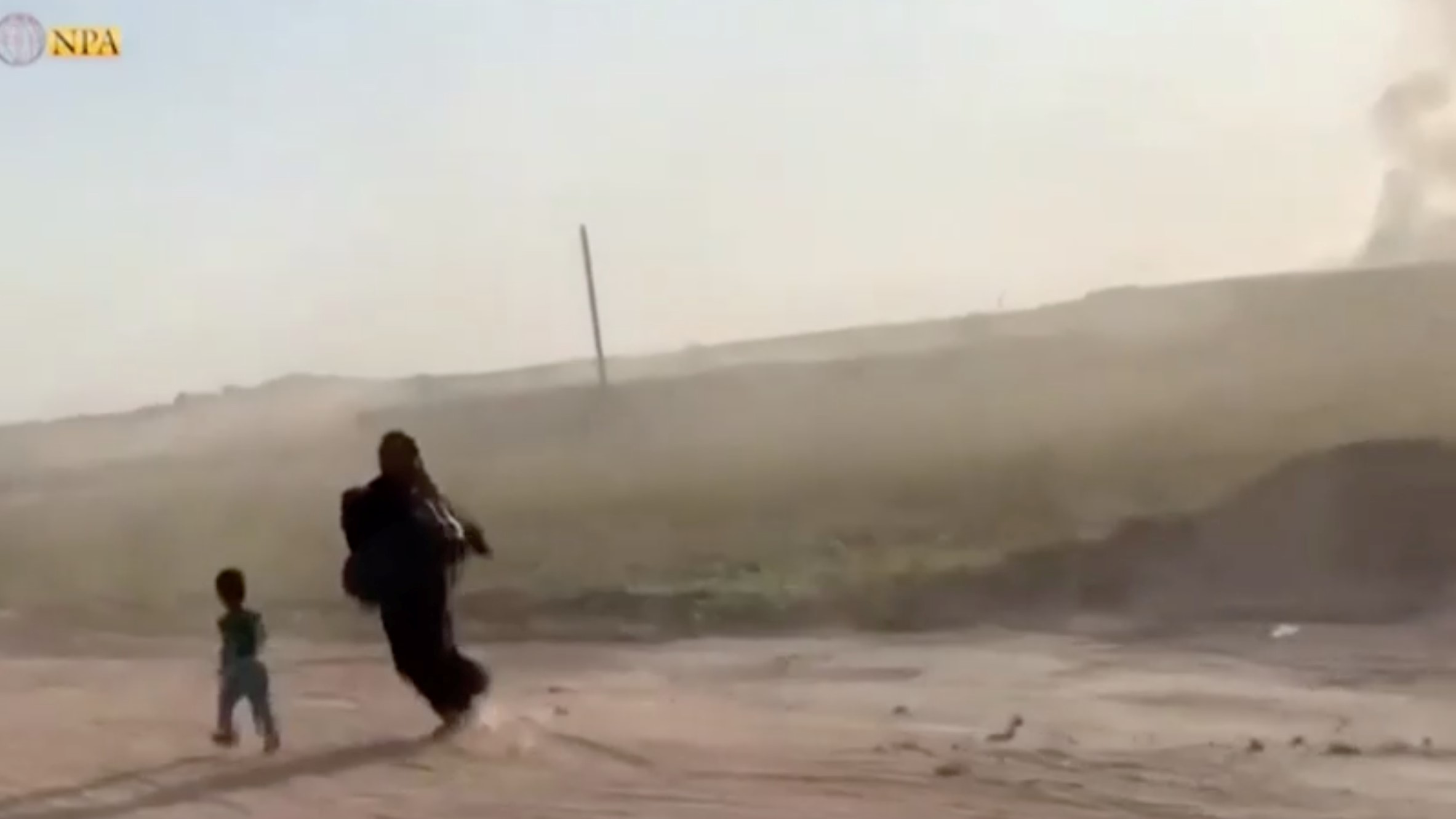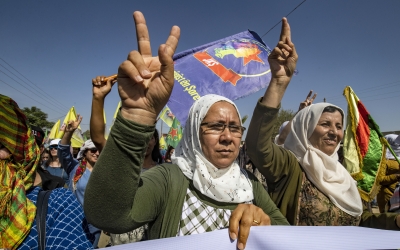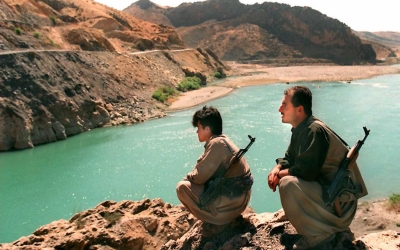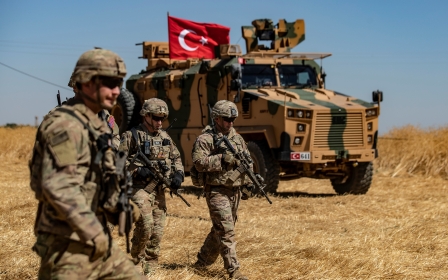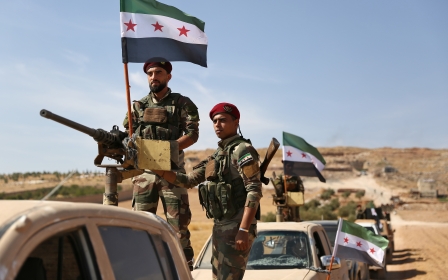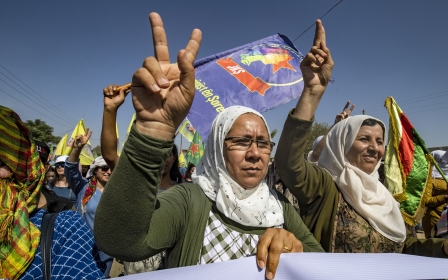After Trump's betrayal, Syrian Kurds face tough choices
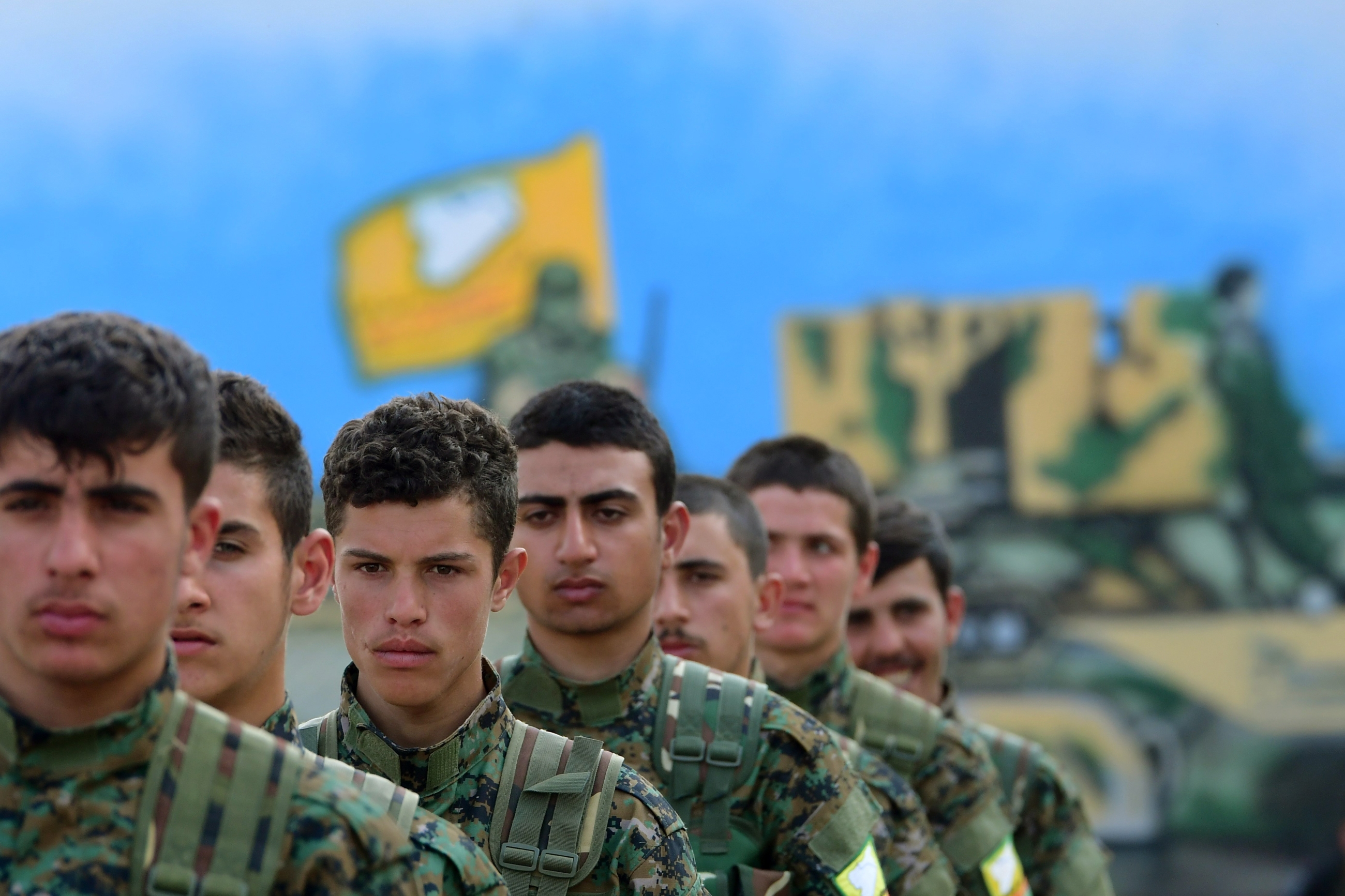
As Turkey began an air and ground offensive on Wednesday in north-eastern Syria, Syrian Kurds were caught scrambling after a "stab in the back" by US President Donald Trump, who effectively paved the way for the operation by withdrawing US troops in the area.
However, as much as the sudden decision from the unpredictable Trump caused bipartisan outrage in Congress, including from his close Republican allies such as Senator Lindsey Graham and Senate Majority leader Mitch McConnell, the shortcomings of the Syrian Kurds' position have allowed such a scenario to arise.
Erratic US policy
The Syrian Kurds find themselves in a precarious and vulnerable situation that was partly their own making, with little to no time to bolster defences or regional alliances.
As the Kurdish-dominated Syrian Democratic Forces (SDF) received international accolades and spotlight for their crucial role in the battle against the Islamic State (IS), they persistently ignored all the signs of an inconsistent and erratic US foreign policy driven by Washington’s tactical necessities.
New MEE newsletter: Jerusalem Dispatch
Sign up to get the latest insights and analysis on Israel-Palestine, alongside Turkey Unpacked and other MEE newsletters
The SDF persistently ignored all the signs of an inconsistent and erratic US foreign policy driven by Washington’s tactical necessities
Operation Spring of Peace, announced by Turkish President Recep Tayyip Erdogan, is the third Turkish offensive in Syria after Operation Euphrates Shield in 2016, and notably for the Kurds, Operation Olive Branch in 2018, which saw Turkey and their Syrian rebel allies under Syrian National Army (SNA) umbrella, overrun Afrin canton as the US refused to intervene.
This is not the first time that Trump has made a sudden announcement to withdraw from Syria, whilst the US has continuously failed to provide long-term guarantees to the Kurds or a clear Syrian policy beyond the fight against IS.
All the more remarkable in the face of the Turkish attacks was the SDF agreeing to remove the defensive fortifications and heavy weapons from border areas in recent weeks under a US mediated deal with Turkey over the creation of a safe zone.
Tough choices
Now, after leaving all their eggs in the basket of their US allies, SDF faces tough choices and little time for alliance building. Over the past years, the dozens of Kurdish fractured political groups failed to bridge their rivalries, or build a workable long-term understanding with Damascus and Moscow.
Whilst the Kurds have rarely fought the regime of Bashar al-Assad, and have maintained ties with Iran and Russia, this has not translated into a formal pact or political agreement.
The dozens of Kurdish fractured political groups failed to bridge their rivalries, or build a workable long-term understanding with Damascus and Moscow
The rapidly evolving Turkish offensive poses a number of difficult choices for the Syrian Kurds. It is unlikely that they will withdraw without a fight, and thus might put up fierce resistance. Nevertheless, with superior Turkish firepower, and crucially, Turkey's dominance of the air, this puts the Kurds in an untenable position.
Their best chance is seemingly to drag Turkey into guerilla warfare, however, this would also mean ceding much of the border territory that Turkey craves. They could also try to put pressure on the West to intervene by abandoning IS prisons or even setting the captives free. Almost certainly, they would abandon defensive positions against IS elsewhere.
A guerilla war gives the Kurds tactical advantage but no long-term protection against a determined Turkey that will likely push further south beyond the targeted 30km buffer zone.
A heavy price
Such a scenario leaves the Kurds with only one realistic option: an agreement with the Syrian regime mediated by Russia. On Tuesday, Badran Jia Kurd, a Syrian Kurdish official, told Reuters that the SDF may open talks with Damascus and Russia to fill a security vacuum in the event of a full withdrawal of US forces from the Turkish border area
However, any agreement with Damascus and Moscow would come at a heavy price. With Ankara and the Syrian army escalating their advance, the Kurds can hardly negotiate from a position of strength.
The Kurds remain adamant on preserving their new autonomous region but Assad remains keen to re-stamp his authority across all of Syria, a goal supported by his staunch Russian backers.
Even if the US had not withdrawn prematurely as in recent days, the Kurds would have needed a long-term pact with Assad, which they, in the confidence of their newfound strategic standing, did not force. After all, without a deal with Damascus, Assad would have posed as much of a long-term military threat to the Kurdish region as Ankara.
The keys to a compromise between Assad and the Kurds now lie with Russia. A full US withdrawal from Syria is a favourable outcome for Moscow as it widens its advantage across the Syrian landscape, and the greater Middle East.
Trump seems obsessed with leaving the Middle East, labelling going into the region as “the worst decision ever made in the history of our country”. In contrast, Russia is determined to expand its growing influence and strategic foothold in the region. The Kurds, however, cannot rely on Russia to stand up to the Turkish military.
Russian concessions
Although pitted on opposing sides of the Syrian battlefield, Russia and Turkey have cosied up in recent years just as Ankara-Washington ties have cooled. Russia remains set on pulling Turkey further away from NATO, as seen with the Turkish purchase of the S400 missile defense system, much to the anger of the US.
Therefore, as much as Russian President Vladimir Putin would not want Turkey to overstep Russia's military presence in Syria or dilute the goal of Assad reclaiming sovereignty over all the country, he may grant certain concessions to appease Turkey, especially as part of a broader Syrian peace settlement.
Although a statement from the Syria foreign ministry blasted the Turkish incursion and "the aggressive behaviour of the Erdogan regime”, any Damascus response is ultimately dictated by its Russian backers.
Russian Foreign Minister Sergey Lavrov stated recently: “We are in touch with both the representatives of the Kurdish side and the representatives of the government, and we are encouraging them to start a dialogue to resolve the problems of this part of Syria, including the problems of ensuring security on the Turkish-Syrian border."
In a statement, the Kurdish-led administrated welcomed the comments by Lavrov and looked to Russia to play a role “as a supporter and guarantor".
Kurdish officials made similar statements on the willingness to collaborate with the Syrian government, including the commander of the Kurdish Syrian Democratic Forces, General Mazloum Kobani. Meanwhile, the Kurds are also likely to try to lean on the support of Tehran, another staunch ally of the Assad regime.
Iranian President Hassan Rouhani urged Ankara to show “patience and restraint”. However, similar to the Russian camp, any Iranian support would come at the price of bolstering Assad’s hand in Kurdish controlled territories.
This view is echoed by recent statements from Rouhani who insisted, “We have openly said that the only solution to ensure safety and security in southern Turkey and northern Syria is the presence of the Syrian army.”
A defiant Trump insisted America’s "stupid endless wars" are ending, but his sudden move leaves behind a trail of destruction and a new bloody front in the devastating eight-year civil war in Syria.
It also leaves the Kurds, who are no strangers to double-crossing from Washington in recent decades, failing to heed the warning signs, and now desperate to seek new alliances and salvage their region.
The views expressed in this article belong to the author and do not necessarily reflect the editorial policy of Middle East Eye.
Middle East Eye delivers independent and unrivalled coverage and analysis of the Middle East, North Africa and beyond. To learn more about republishing this content and the associated fees, please fill out this form. More about MEE can be found here.



